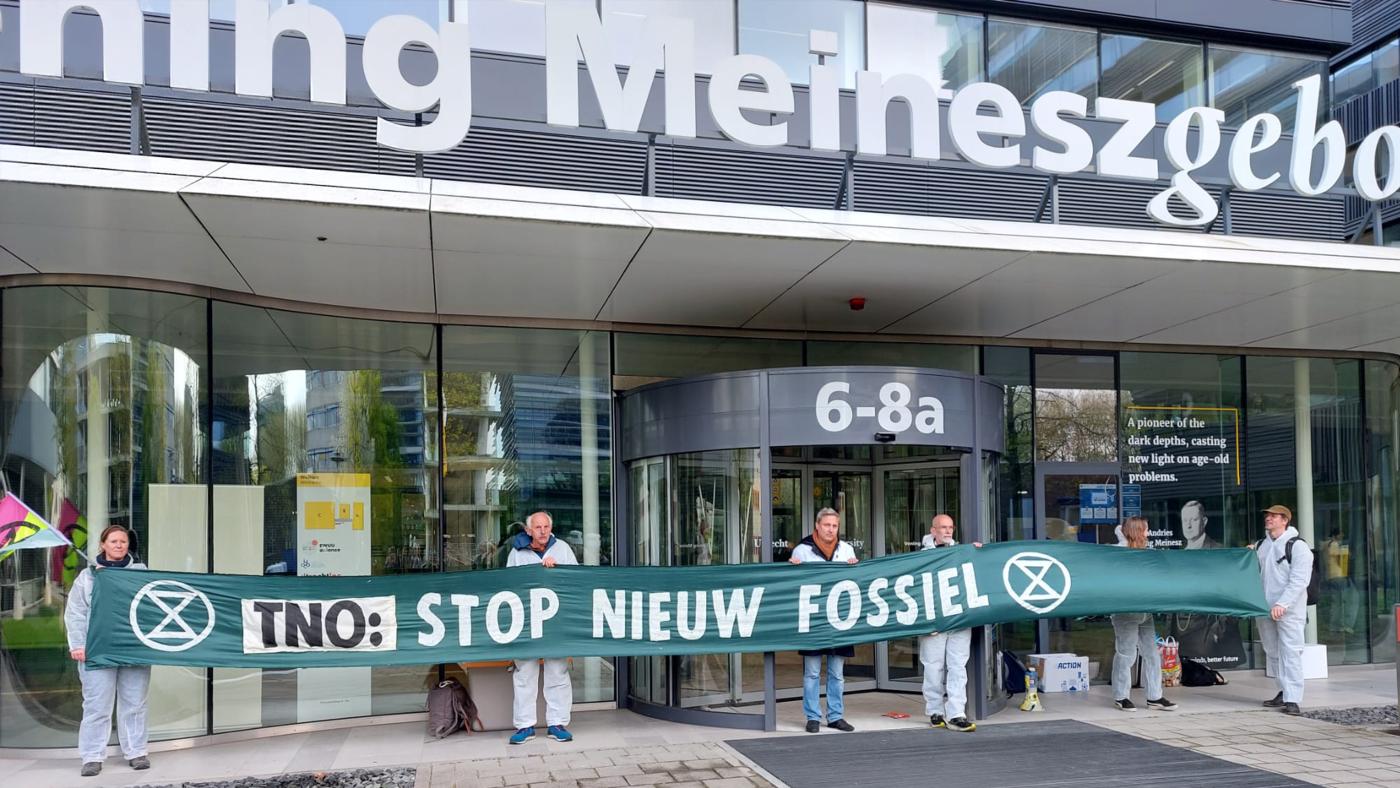Protest against TNO's fossil fuel branch
Scientist Rebellion blocks entrance to Vening Meinesz building

At 9 a.m., a secondary school class is listening to a mini-lecture on global warming by Guus Dix, spokesperson for Scientist Rebellion and researcher at the University of Twente, in front of the Vening Meinesz building at Utrecht Science Park (USP). They were supposed to attend lectures on the climate and circular economy, but the blockade kept them from doing that.
Dix seizes the moment to update the high schoolers on the consequences of drilling for oil and gas, which are causing the earth to heat up rapidly. ‘Scientists have known this for thirty years. It is clear what we need to do: stop looking for oil and gas, but it looks like it's hard to stop."
Gas extraction in the Wadden Sea
That's why Scientist Rebellion is also protesting in front of the Vening Meinsz building, where TNO is located. They are against the plans to extract gas under the Wadden Sea. ‘Many organisations have spoken out against these drilling operations. We want TNO and the Mining Council to advise the minister against the drilling operations under the Wadden Sea,’ says Dix.
The Minister of the Climate, Sophie Hermans, is talking to the Dutch Petroleum Company (Dutch acronym: NAM) about the possibility of drilling gas under the Wadden Sea. If these plans went ahead, the seabed could subside. Combined with rising sea levels, the mudflats would no longer be able to dry up, which would have many consequences for biodiversity. The Wadden Sea would also probably lose its protected UNESCO status.

According to Guus Dix, the fossil fuel industry is so present on the UU campus that it isn't hard to find. The Vening Meinesz building is also home to the university's earth scientists, and 'many of them are closely connected to the fossil fuel industry. UU members are also on the Mining Council.’ The Mining Council is an independent advisory body that advises the climate minister on granting mining licences.
Fossil fuel collaborations
UU is still keeping the door open for the fossil fuel industry, despite its earlier promise to refrain from entering into new collaborations with companies that do not commit to the Paris Agreement. Dix: ‘That's also why we're here. The Executive Board hasn't made a clear choice about new collaborations with fossil fuel companies that are exacerbating the climate crisis.’
UU employees criticised the protest by Scientist Rebellion. In addition to Earth Sciences, the building houses other departments of Geosciences, including the Copernicus Institute for Sustainable Development. So, the scientists who do not collaborate with the fossil industry and are searching for solutions to the climate crisis are also affected by the blockade. Dix: ‘We've had many conversations, including with earth scientists who had a hard time with our blockade because they are looking for solutions. That's why we ended up deciding to focus on the TNO building.’
Shortly after the blockade, Scientist Rebellion decided to make the side of the building accessible again due to this criticism. People could enter the building again through the bicycle shed. The secondary school class could still attend the lectures.